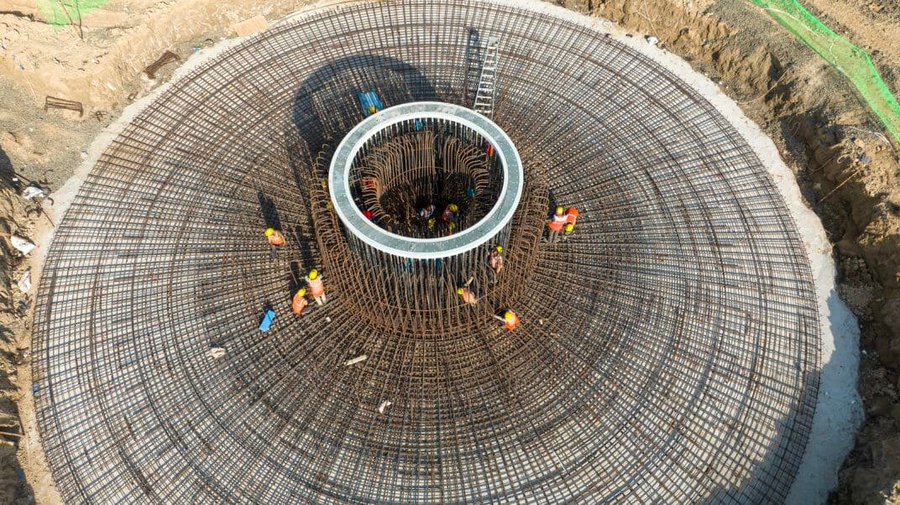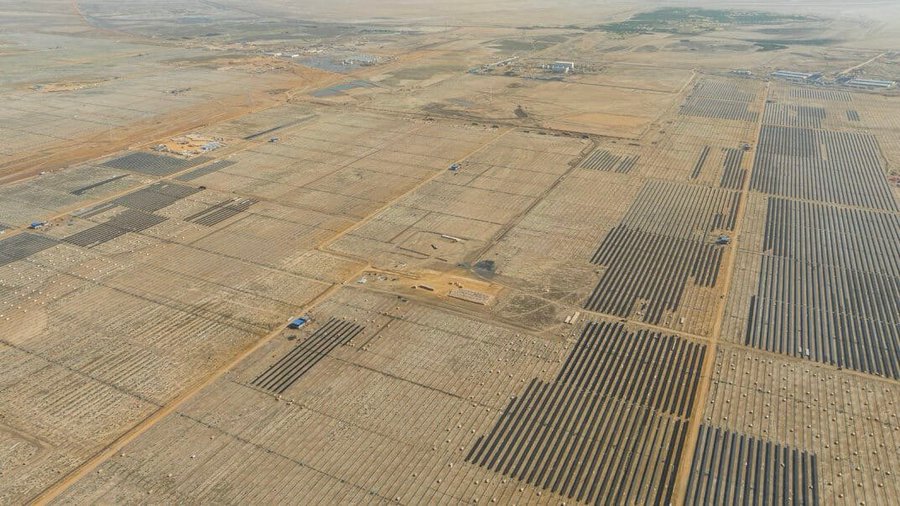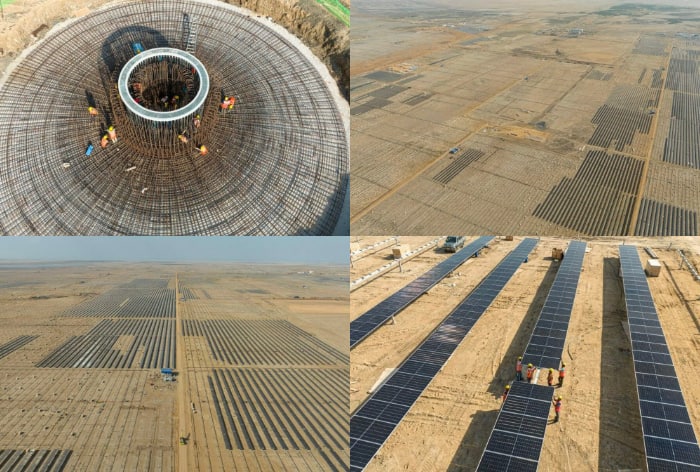This Adani Group project is expected to contribute to India’s green energy capacity, besides helping it meet the climate action pledges it made at the COP. India committed to an ambitious five-part ‘Pancham Ride’ pledge at the COP26, held in 2021.
New Delhi: In an ambitious move towards sustainable energy, India is building what is said to be the world’s largest renewable energy project in the Rann of Kutch in Gujarat. Taking to his social media platform
Adani expressed his pride in making a significant contribution to India’s renewable energy progress and emphasized that the project is visible even from space. “Proud to play a pivotal role in India’s impressive progress in renewable energy as we build the world’s largest green energy park. Covering 726 square kilometers in the challenging Rann Desert, this monumental project is even visible from space. We will generate 30 GW to power more than 20 million homes.”
The group chairman shared with the X-post a few photos showing how the ongoing large-scale project was taking shape.

“Also just 150 km away, in our karmabhoomi Mundra, we are creating one of the world’s most extensive and integrated renewable energy production ecosystems for solar and wind power. This marks an important milestone in India’s journey towards sustainable energy, and underlines our commitment to the Solar Alliance and the Atmanirbhar Bharat initiative.”

This Adani Group project is expected to contribute to India’s green energy capacity, besides helping it meet the climate action pledges it made at the COP. India committed to an ambitious five-part ‘Pancham Ride’ pledge at the COP26, held in 2021. These include reaching 500 GW of non-fossil electricity capacity, with half of all energy needs generated from renewable energy sources, and reducing emissions by 1 billion tonnes by 2030.

The Khavda renewable energy park, named after the nearest village to the project site, is an example of India’s journey towards an Atmanirbhar Bharat, or a self-reliant India. The Indian government has estimated the cost of this massive project at at least $2.26 billion, reflecting the scale and importance of the investment in the country’s future.

India also aims to reduce emissions intensity of GDP by 45 percent. Finally, India is committed to achieving net-zero emissions by 2070.


